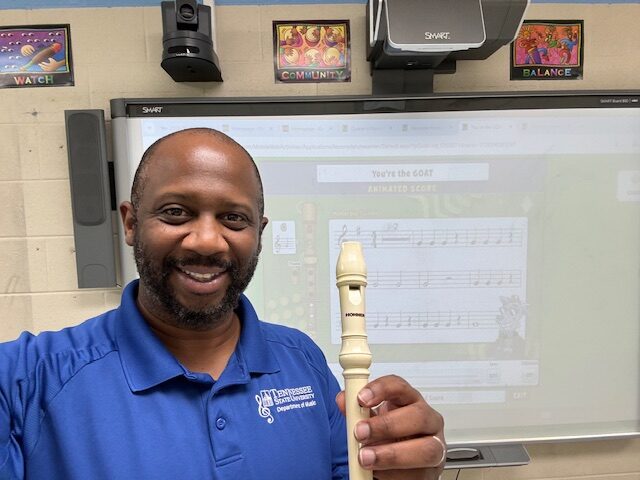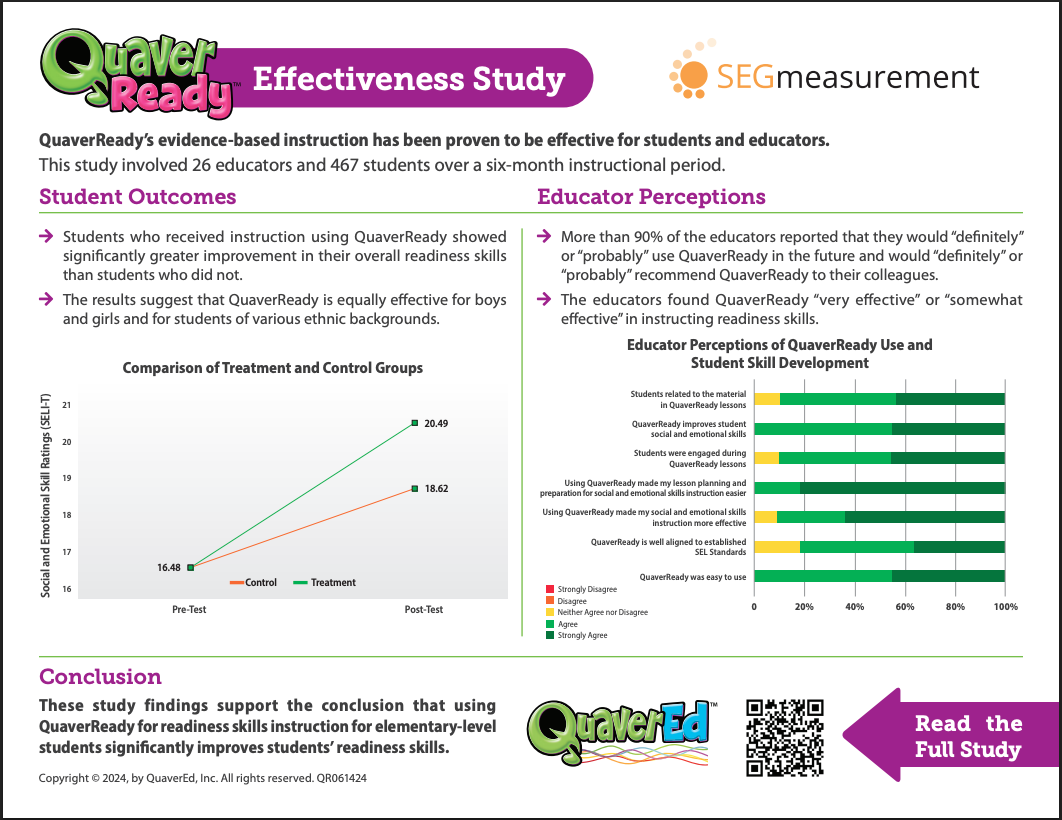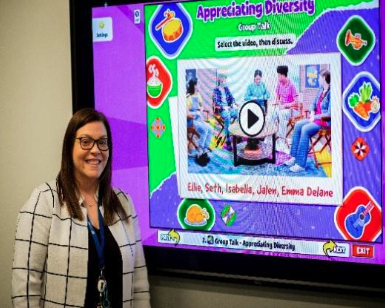“Quaver helps me teach future music educators.”
By Kristin Clark Taylor
Dr. Robert Bryant III is an Associate Professor of Music Education at Tennessee State University. He is also the university’s Music Education Program Coordinator.
To put it simply, music is his mission.
Listen to him speak for even a few minutes, and you’re immediately struck by his sense of purpose and passion – for music, of course, but also for creating a college classroom where learning, exploration, and discovery are constant.
Dr. Bryant teaches his students how to teach music, and he takes the task seriously.
Just as important as the task, however, are the tools he uses to get the job done – and in his estimation, there’s one tool in particular that’s the stand-out:
QuaverMusic.
“In my classes,” Dr. Bryant says with quiet pride, “Quaver is an important part of the learning experience.”
The esteemed educator describes the “fullness” of the Quaver curriculum, applauding its ability to reach his students where it counts the most: Their hearts.
“This is a resource that helps my students become fully immersed in the music education experience,” he reflects thoughtfully.
“There’s the academic component of music education, of course,” he says, “but there’s also an emotional component, too — and Quaver helps create the connection.”
The Quaver Connection
When Dr. Bryant recently took a large group of his students to visit Quaver headquarters in Nashville, he says that the “connection” became even stronger.
During the on-site visit, Bryant says that he and his students — college sophomores, juniors, and seniors – had the opportunity to talk with Quaver staff, visit the state-of-the-art recording studio, and see, with their own eyes, “how the songs and lessons became songs and lessons …which proved to be highly impactful for everyone.”
“In black and brown communities, music is an important and deeply emotional tool,” Dr. Bryant says.
“That visit also helped my students see that Quaver places a high priority on creating a balanced curriculum that includes all races,” he reflects. “It connected with them on a human level,” he says.
Dr. Bryant says that most of his students at Tennessee State, a Historically Black College and University (HBCU), “will return to their communities to teach music after they graduate,” so accumulating a strong, well-rounded knowledge base is vital.
Quaver, he says, helps deepen their knowledge base in important ways.
A Step Inside Dr. Bryant’s Classroom
- Demonstration: Dr. Bryant says that he himself demonstrates the various ways Quaver can be used. “They see how user-friendly it is and how I’m able to navigate the various layers and levels, and it really illustrates the depth and breadth of the resource.”
- Discovery: Many of his students “come into my class thinking they’ll be high school band teachers, but after rolling up their sleeves and discovering the richness and diversity within the Quaver curriculum, many become attracted to elementary general music.”
- Real-World Application: Fieldwork is an important part of the learning experience, Dr. Bryant says, explaining that TSU has formed collaborative partnerships with local elementary schools, which places his students directly into the classroom.

“Quaver helps me teach future music educators,” says Dr. Robert Bryant III, Associate Professor at Tennessee State University. Bryant also holds the role of Music Education Program Coordinator at TSU.
The professor finishes with a flourish.
“Using Quaver,” Bryant says, “my students learn to actually line up their scope and sequence, how to get their standards alignment in place, and how to begin to develop their own teaching styles,” he says.
But it is perhaps his last four words that offer the most poignant description of these promising future music educators.
With Quaver, he says, “They learn by doing.”
For more information on QuaverMusic, go to QuaverEd.com/Music.
Kristin Clark Taylor is an author and a journalist.
***


